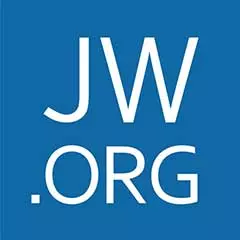
Documents prove that private anti-cult organizations had a key role in the creation of government documents that caused a surge of hate speech and violence.
by Massimo Introvigne — In June 2023, while peacefully engaging in preaching, a female Jehovah’s Witness in her 70s was assaulted by a 57-year-old man. He violently kicked her in the stomach and pushed her down concrete stairs, causing her to suffer, among other bodily injuries, a fracture in the right arm, requiring a long recovery. In February 2024, two female Jehovah’s Witnesses were visiting a housing complex when a man in his thirties verbally assaulted them. When they tried to leave, he said, “Don’t run away. Wait!” He kicked one of the women in the stomach, causing her to fall down the stairs. He then descended the stairs, grabbed her by the hair, and continued to kick her.
These incidents did not happen in Russia or one of the other non-democratic states where Jehovah’s Witnesses are routinely persecuted. They took place in a democratic country we used to consider as respectful of human rights and religious liberty, Japan.
They were not isolated. On December 21, 2023, two female Jehovah’s Witnesses were violently assaulted while evangelizing in Kita Ward, Tokyo. On February 9 and 14, 2024, letters threatening the mass murder of Jehovah’s Witnesses were left at their places of worship in Hyogo Ward and Kita Ward, Kobe City. In addition, the Japanese Jehovah’s Witnesses reported 62 cases of hate speech in 2023 between the end of February and the end of November.
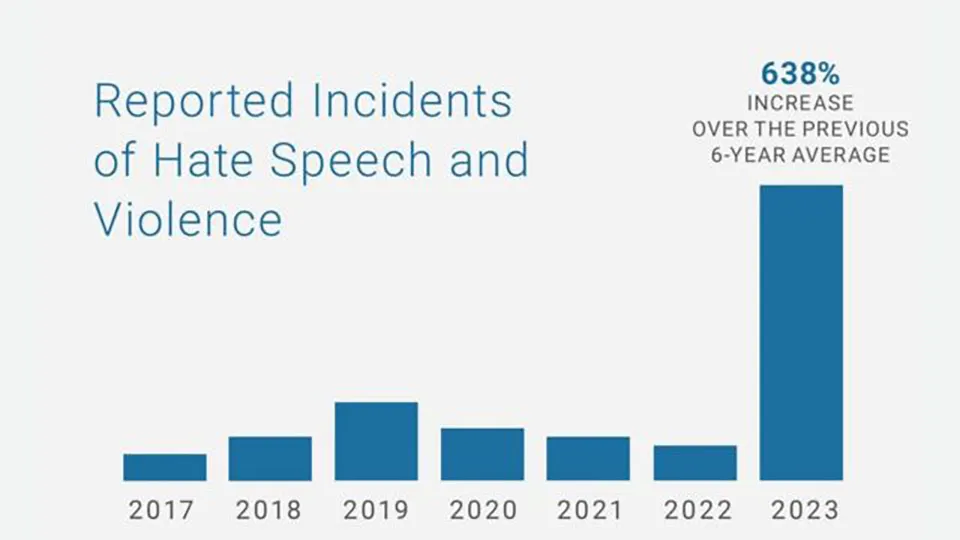
Increase in hate crimes and hate speech against the Jehovah’s Witnesses in Japan, from the Jehovah’s Witnesses’ submissions to the Japanese government.
What exactly is going on in Japan? Opposition to the Jehovah’s Witnesses and to other minority religions manifested itself since the past century, and in Japan there are “anti-cult” organizations with regular contacts with their counterparts in Europe. However, the current wave of discrimination and violence started with the assassination of former Prime Minister Shinzo Abe in Nara on July 8, 2022. Abe, although not a member, had supported initiatives of organizations connected with the Unification Church, now called the Family Federation for World Peace and Unification. His assassin, Tetsuya Yamagami, claimed he wanted to punish him for this support. He reported he hated the Unification Church since his mother went bankrupt in 2002, allegedly because of her excessive donations to the movement, of which she remains a member.
Rather than blaming the assassin, or the anti-cult campaigns that might have contributed to his decision to commit the crime twenty years after his mother’s bankruptcy, Japanese media launched a crusade against the Unification Church. It quickly extended to other groups stigmatized as “cults,” including the Jehovah’s Witnesses—who obviously had nothing to do with the Abe assassination. The well-organized Japanese anti-cult movement saw in the incident a golden opportunity to achieve its aim of having laws and regulations against the “cults” passed in Japan. Its positions dominated the media and exerted a strong pressure on the government.
As a result, not only the government filed a court case seeking the dissolution of the Unification Church/Family Federation, but new laws and regulations were passed on donations and on the so-called “religious child abuse.” Directives aimed at contrasting the latter phenomenon, in the form of Questions and Answers (Q&A) Guidelines, were released by the Minister of Health, Labor, and Welfare (MHLW) on December 23, 2022. As “Bitter Winter” reported, they targeted a wide range of educational practices by conservative religion in general, from teaching children that those who commit serious sins and do not repent may go to hell to preventing them from watching cartoons and reading comics their parents regard as immoral, and counseling minor daughters against abortion. Some provisions targeted specifically the Jehovah’s Witnesses without naming them. They mentioned, for example, not celebrating birthdays and other festivities and refusing blood transfusions, which are practices typical of the Jehovah’s Witnesses and not found among the other groups singled out by the anti-cult campaigns. In addition, in November 2023, the Jehovah’s Witnesses were slandered by two reports produced by anti-cult groups for allegedly violating the Q&A Guidelines.
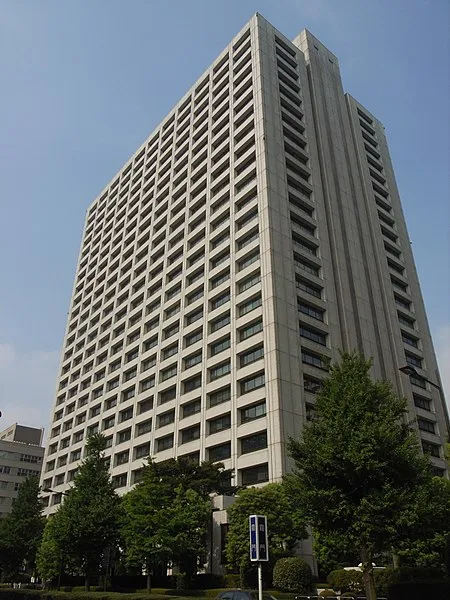
The building hosting the Ministry of Health, Labor, and Welfare in Tokyo. Credits.
The combined effect of the anti-cult reports and the Q&A Guidelines determined a 638% increase of incidents of hate speech and violence against the Jehovah’s Witnesses in Japan in 2023 with respect to 2022. This is a national human rights and freedom of religion or belief crisis, considering that there are more than 214,000 Jehovah’s Witnesses in Japan, with more than 310,000 attending their religious services. All are affected, directly or indirectly, by the surge in hate speech and hate crimes.
The Jehovah’s Witnesses have now released the submission to the Japanese government they filed in March 2024, which includes expert opinions by several scholars (one of whom is the undersigned). The submission also reveals a crucial and extremely disturbing circumstance. The Jehovah’s Witnesses through a legal request obtained disclosure from the Children and Families Agency (CFA) about the creation of the Q&A Guidelines. The documents revealed that the initiative leading to the Guidelines came from private anti-cult organizations, which were also involved in creating their content.
On October 12, 2022, Kimiaki Nishida, the Chairman of the Japan Society for Cult Prevention and Recovery (JSCPR), known as a vitriolic critic of the Jehovah’s Witnesses, submitted an application to the Government, requesting that it recognize “a new type of child abuse” of “second generation children” by “cult-like groups.” On October 27, 2022, representatives of another anti-cult group submitted to each political party a request similar to the one made by JSCPR. On October 28, 2022, Nishida and his supporters held a press conference announcing the filing of their application with the Government. That same day, they met with MHLW representatives, the Ministry of Education, Culture, Sports, Science, and Technology, and the Ministry of Foreign Affairs. On October 31, 2022, as he confirmed in a press conference held the following day, the Minister of Health, Labor, and Welfare, Katsunobu Kato, instructed his ministry to prepare a Q&A document on “child abuse” by minority religions. On December 5, 2022, the MHLW held the first of several closed-door meetings with Nishida and other anti-cultists to prepare the Q&A Guidelines. On December 20, 2022, the last such closed-door meeting was held and on December 23, 2022, the final draft of the Q&A Guidelines was approved.
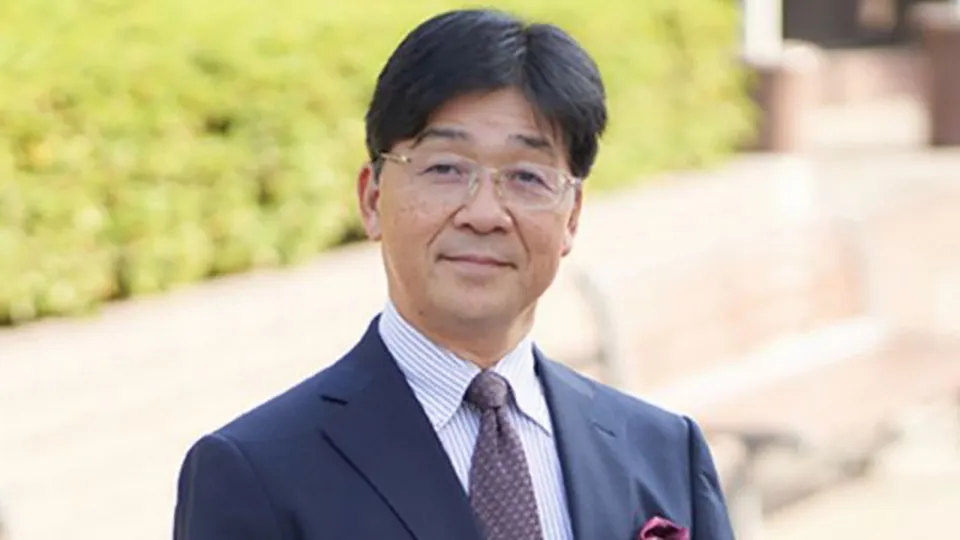
Anti-cultist Kimiaki Nishida. From X.
It thus appears that the MHLW and the Japanese government acted as the secular arm of the anti-cult organizations and were guided by the latter in drafting guidelines aimed at harassing religious minorities.
The information the anti-cultists supplied to the government was largely false. In January 2024, an independent research team conducted the largest-ever quantitative study on Jehovah’s Witnesses in Japan. Five international scholars, serving as advisers, reviewed the study design and the research findings. Anti-cultists had told the government that the Jehovah’s Witnesses systematically prevent their children from attending higher education institutions. The research proved that, on average, the Jehovah’s Witnesses in Japan have higher education levels compared with the general population. “For the Jehovah’s Witness sample population (age 18 to 110 years): (1) 95.1% continued schooling beyond compulsory education, compared with 68.9% for the general population, (2) 58.4% graduated from high school, compared with 35% for the general population, and (3) 36.7% completed postsecondary education, compared with 33% for the general population.” All other indicators confirmed that the education and the care for the well-being of children in Japanese Jehovah’s Witnesses family is above average. The claim that Jehovah’s Witnesses do not report to secular authorities cases of sexual abuse of children within their community is also false.
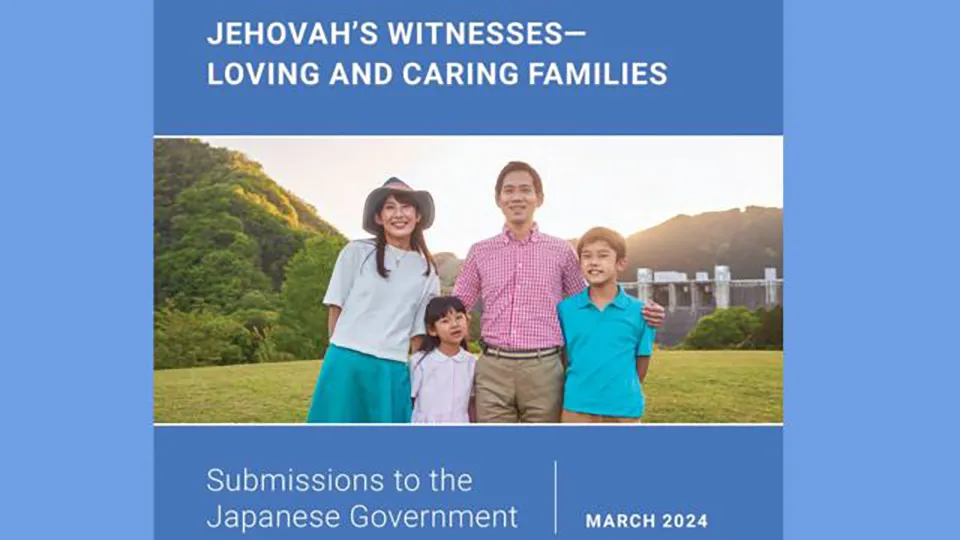
The Jehovah’s Witnesses’ submissions to the Japanese government.
The same survey evidenced that almost 95% of the Jehovah’s Witnesses in Japan had seen media coverage that they believed misrepresented their community. Over five hundred respondents (out of 7,193) reported having been insulted, 63 were denied employment, and 54 were threatened or attacked.
The anti-cult organizations that spread fake news through the media and incited the government to enact regulations in obvious contrast with freedom of religion or belief are the main responsible of the increase in hate crimes against a peaceful community. The Japanese government, however, is not innocent. For political reasons and driven by opinion polls and the media, it accepted the claims of the anti-cultists about the Jehovah’s Witnesses and ignored the findings of an international scholarly literature that has proved them false.
Source: Bitter Winter





